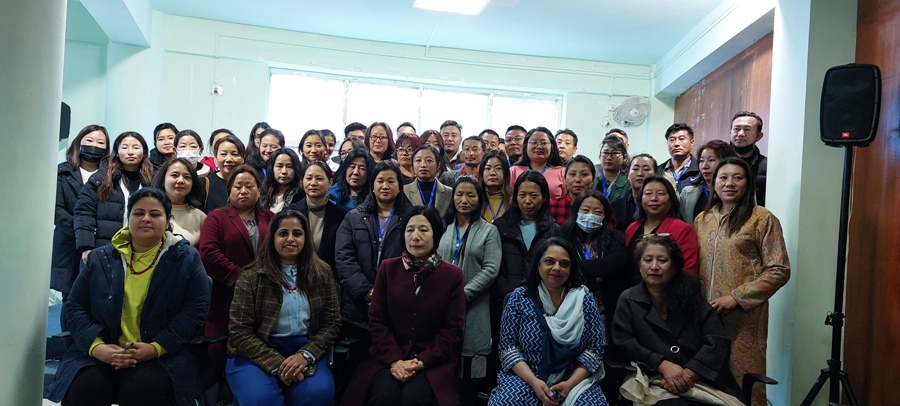THURSDAY, MAY 22, 2025
- Home
- Universal Design for Learning needed in schools - Sekhose
Universal Design for Learning needed in schools - Sekhose
Published on Feb 16, 2023
Share

Asserting that schools need strategies for inclusivity to impact learning for all, Asano Sekhose, Chairman of Nagaland Board of School Education (NBSE) underscored the need for Universal Design for Learning (UDL) in schools.
Sekhose was addressing the three-day workshop on ‘improving learning outcomes by enabling inclusive education’ for the district inclusive education coordinators and inclusive education resource persons organised under learning enhancement package 2022-23 by Nagaland Education Mission Society, Samagra Shiksha.
She highlighted the background, policies, education, plans and programmes of government of India that opened up avenues for integrated education, now referred to as inclusive education, to provide education to every child in need from the Kothari Commission, 1964 and other subsequent commissions and the latest being Rights of Persons with Disabilities (RPWD) Act 2016.
Underling the definition of inclusive education as a system of education wherein students with and without disabilities learn together, she said the system of teaching and learning is suitably adopted to meet the learning needs of different types of students with disabilities, adding that inclusive education means all students regardless of any challenges are placed in age- appropriate general education.
Sekhose said the NEP 2020 - mandates full participation of children in regular schooling process from the foundational stage to higher education, while also reaching out to the schools to have required infrastructure, assistive devices; and heads of Institutions/Administrators, teachers, counsellors need to be sensitised.
The chairman said inclusive education needs to be integrated in the school education set-up -- the classroom -- to reach out to all categories of children and should come up with strategies for inclusivity to impact learning for all.
She stated that the main objective of learning enhancement programme (LEP) is to identify the learning gaps and equip students with core learning prerequisites appropriate to the particular grade, adding that this intervention helps in improving the learning outcomes of children having learning gaps which are caused by various reasons, some of which are learning loss due to COVID-19 pandemic, learning loss due to socio-economic condition of students, and also learning gaps due to learning disabilities, inadequate foundation.
Adding that the event is for continuing the learning process for all children, including children with special needs (CWSN), she said, “This is why Samagra Shiksha Nagaland has chosen Universal Design for Learning (UDL) as the most appropriate resource for helping all children teachers and educators are equipped with the knowledge and skill of how to practice UDL in their classrooms which also helps them understand how to support and include CwSN.”
She asserted that UDL teaching approach works to accommodate the needs and abilities of diverse types of learners -- present the syllabus and content in different ways; differentiate the ways students express what they know adding that it is a way of approaching teaching and learning that helps give all students an equal opportunity to successfully learn.
Sekhose also stressed on the need to encourage the Inclusive Education Resource Persons (IE RPs) from Samagra Shiksha to take the training down to the schools they visit and train the teachers in those schools, so that UDL is understood by all and all students can benefit from it, not just CwSN.
During the programme, a short speech was also delivered by Roohi Sharma, Senior Programme Manager, Changeinkk Foundation, New Delhi.
The programme was chaired by Dr. Chumbeni Kikon, Joint Mission Director, Samagra Shiksha, and she remarked that the state has an acute shortage of inclusive education resource persons while she exuded hope that the workshop will enable the resource persons.
The event will culminate on February 17.

